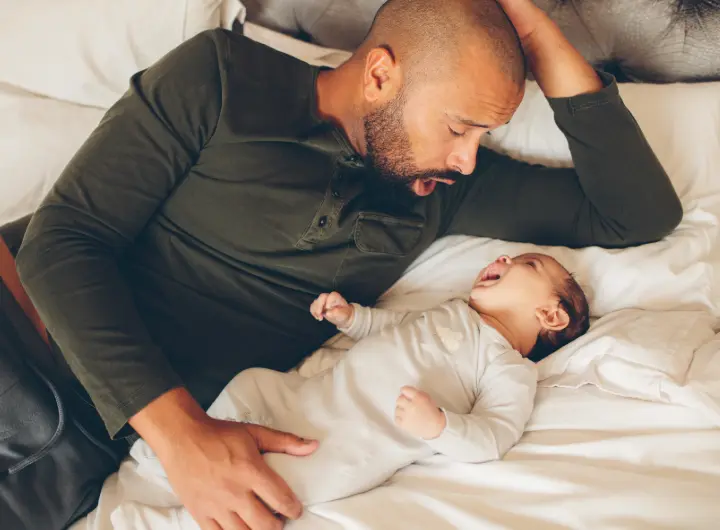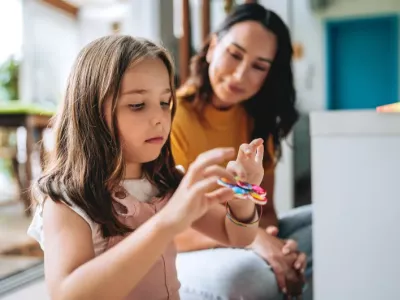You’re not alone: Perinatal Mental Health Week highlights free support for regional dads

This Perinatal Mental Health Week (23rd to 29th November), Triple P − Positive Parenting Program experts are showing regional and remote fathers and non-birthing partners that they are not alone, revealing how targeted support can transform new parents’ wellbeing and create stronger, more connected families.
Professor Alina Morawska, Triple P for Baby co-author and Director of The University of Queensland's Parenting and Family Support Centre, said that approximately 1 in 10 fathers experience anxiety, depression, or both during pregnancy and following birth.
"Historically, the primary focus has been on supporting new mums, which is of course critical. However, we also know that children have better life outcomes when the mental health and wellbeing of fathers and non-birthing partners is strengthened," Dr Morawska said.
“Dads living in regional and remote areas experience slightly higher rates of mental health distress (19%) compared to their urban counterparts (16%). Problems with accessing to mental health services, financial pressures, work-life balance struggles, and social isolation, all can compound the normal stresses of new parenthood,” she said.
The good news? New parents and carers can take positive steps to boost their mental health and strengthen their families.
"When fathers take care of their wellbeing, it has a positive impact on the overall health and wellbeing of their kids," Dr Morawska said.
"No matter what stage of the parenting journey you're at, you're not alone, and you don't have to bear the load in silence."
Triple P’s simple strategies to boost the health and wellbeing of new parents and carers:
- While supporting your new family, it’s also important to look after yourself. When you take time to recharge, you're likely to feel calmer and more positive, which naturally flows on to your baby and family.
- Strengthen your bond with your baby. Try small things like making eye contact, singing, cuddling, talking, and reading together to strengthen your relationship and support your baby's development.
- Be gentle with yourself. It's completely normal to feel a mix of emotions right now − joy, uncertainty, and sometimes even sadness. This is a major life transition, and all those feelings are normal. If you have concerns, seek support.
- Ask for help, you’re not alone! Consider talking to a mate to share the load, or reaching out to your GP, a health professional, or look for parenting support resources. Seeking help is a sign of strength, not weakness.
Thanks to Australian Government funding, Triple P Online for Baby offers free, 24/7 evidence-based support for new and expecting parents and carers. Having access to help online has been shown to be beneficial for regional and remote families.
"By being open about their experiences and accessing support, parents and carers can create a positive home environment that gives children the best start in life," Dr Morawska said.
If you’re struggling, contact your doctor, health professional or a support line like Lifeline on 13 11 14, or The Gidget Foundation, on 1300 851 758.

